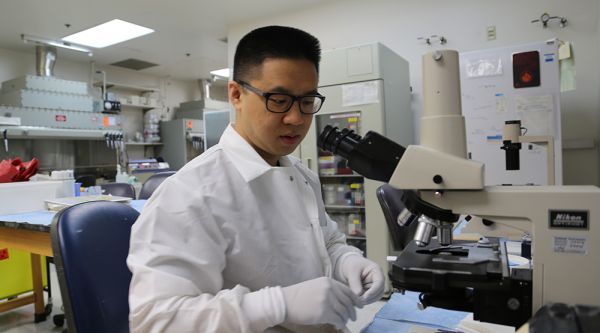How did you get interested in your research topic?
My interest in the field of genome editing dovetails with my passion for surgery as both disciplines allow me to think critically about problems and how to fix them, be it modifying the DNA code or mending tissues. I was amazed by the ability of genome editing and engineering to precisely alter specific genes, be it to cure disease-causing mutations or to impart new functions to cells. My current research focus applies these techniques in finding a cure for Alpha-thalassemia major, a rare blood disorder resulting from deletion of the alpha-globin gene, and in improving the safety and efficacy of stem-cell derived islet transplants.
How did you select your research mentorship team?
During my research time, I was really interested in linking up with surgeon-scientists and PhD scientists in the department that I felt were doing exciting and novel work. I am fortunate to have a mentorship team with Dr. Tippi MacKenzie and Dr. Kyle Cromer, who are both experts in the field of gene editing and offer me invaluable guidance and support. I have benefited greatly by having mentorship by both surgeons and PhD scientists, who have taught me the unique and varied skillset needed to be be a successful surgeon-scientist.
How will you incorporate your research into your future career goals?
My dream is to combine the fields of genome engineering and transplantation towards an independent career as a solid organ transplant surgeon-scientist. I see incredible opportunities in applying genome engineering technology in transplant surgery – from developing stem-cell derived beta cell therapies that could one day replace the need for pancreas transplants, to genetically engineering immune cells to impart precision immunosuppression and supplant the need for morbid immunosupressive agents, the sky’s really the limit!
